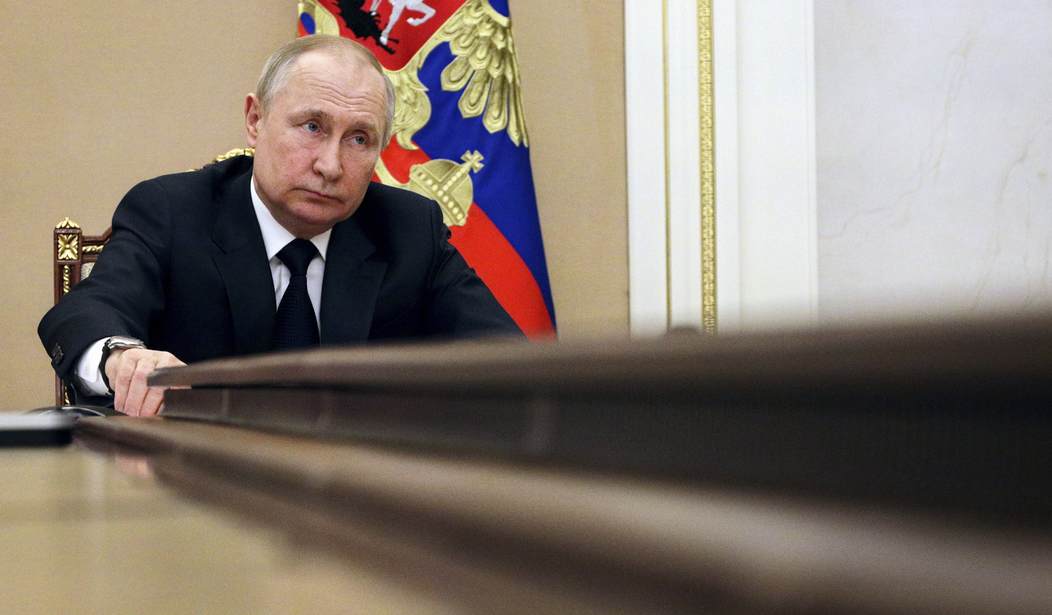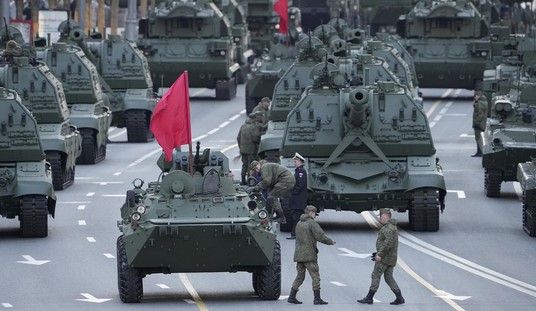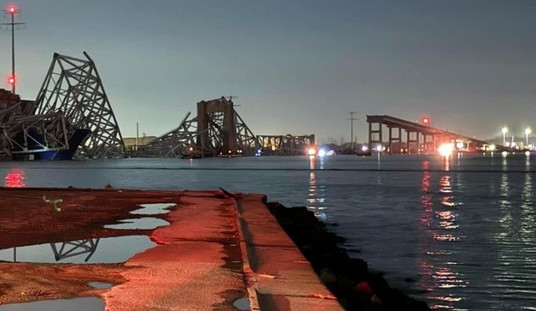Has anyone explained the “sunk cost” fallacy to Vladimir Putin? It certainly appears that he will learn it the hard way. After an initial counteroffensive by Ukraine around Kharkiv began pushing back Russian forces, Russia announced that it would send reinforcements to the battle to bolster their defenses.
How many effective troops does Putin have left in reserve, though?
Russia is redeploying troops to the Kharkiv region in eastern Ukraine, where Kyiv’s army has been conducting a large-scale counter-offensive to take back territory captured by Moscow, Russian news agencies reported on Friday.
Moscow-installed Vitaliy Ganchev said in televised remarks that “fierce battles” were under way near Balakliya, a town in Kharkiv region that Ukraine said it had recaptured on Thursday.
A Russian-installed official in the Russian-controlled part of Ukraine’s Kharkiv region said earlier on Friday that Ukrainian forces had registered a “substantial victory” by breaking through Russian defences in the region. …
Parts of Ukraine east of Kharkiv, the country’s second city, have been under Russian control since shortly after the Kremlin ordered its armed forces into Ukraine on Feb 24, although Russia has been unable to take the city itself.
Zelensky had posted a video in which Ukrainian soldiers said they had captured the town of Balakliia, which lies along part of the frontline south of Kharkiv.
It was the first rapid advance of its kind reported by either side for months.
The Ukrainian strike around Kharkiv came as a surprise to Russian forces, which had been shifting defenses south. Ukraine had focused on liberating Kherson, a vital strategic link for Russia to Crimea, especially after Ukraine found ways to neutralize the Russian navy. The sudden shift to offense in the east threatens to cut off important lines of communication for Russian forces, and they were unprepared for the attack. Now some of them are either running away or trapped:
Russian troops are reportedly abandoning their positions in Kharkiv amid reports of a Ukrainian counteroffensive in the currently occupied region.
Military analyst Rob Lee shared what he called a “pessimistic” account from a Russian source on the Telegram messaging app on September 7.
The source wrote that Russian forces in the Kharkiv region are abandoning not particularly well-fortified positions and that Ukrainian forces are bypassing towns and urban fights to advance deeper behind Russian lines.
“They [Ukrainian troops] don’t get involved in city fights…but leave behind our guys, surrounding them and hitting them with artillery,” the source wrote, adding that the Russian troops who are left behind “do not have heavy weapons and they simply cannot counteract Ukrainians.”
Thus the need for the reserve deployment, but it might not make much difference. The cracks in the Russian line between Kharkiv and Izyum have endangered the Russian position in the east, and have left the forces that remain uncoordinated and ineffective. Reinforcements might help, but the Institute for the Study of War reports that leadership on that front has failed in the crisis:
Ukrainian successes on the Kharkiv City-Izyum line are creating fissures within the Russian information space and eroding confidence in Russian command to a degree not seen since a failed Russian river crossing in mid-May. Ukrainian military officials announced that Ukrainian forces advanced 50km deep into Russian defensive positions north of Izyum on September 8, but the Russian Ministry of Defense (MoD) notably did not issue any statement regarding Ukrainian advances in Kharkiv Oblast.
Ukrainian successes and the Russian MoD’s silence prompted many Russian milbloggers to criticize and debate Russian failures to retain control over the city of Balakliya, approximately 44km northwest of Izyum. Some milbloggers claimed that Russian forces fully or partially withdrew from Balakliya in good order, while others complained that Ukrainian forces beat Russian forces out of the settlement. Others noted that Rosgvardia units operating in the area did not coordinate their defenses or have sufficient artillery capabilities to prevent Ukrainian counterattacks in the region. Milbloggers warned about an impending Ukrainian counteroffensive northwest of Izyum for days prior to Ukrainian advances, and some milbloggers noted that Russian command failed to prepare for “obvious and predictable” Ukrainian counteroffensives.
Even more than before, sending more troops into a disordered mess like the Kharkiv-Izyum line will make them into cannon fodder. Perhaps the command in that theater can re-establish coordinated lines as they fall back, but this looks more like a collapse of morale under clearly incompetent command. The problems of coordination on this line apparently existed prior to the Ukrainian counteroffensive, and now have worsened as the line has begun breaking up.
Next up — taking Izyum and Kupyansk, which could threaten the whole Russian flank:
But outside analysts were taking to social media to conclude that Ukraine is breaking out toward Izyum and Kupyansk, which lie along important supply and transit routes for Russian forces.
Michael Kofman, director of Russia studies at military research non-profit CNA, on Twitter characterized Ukraine’s attack in the area as “breakthrough.”
“It appears ambitious, intended to envelop Izyum and try to trap Russian forces there,” Kofman said in a tweet.
The Ukrainians want to squeeze the Russians into a pocket without effective artillery, reducing it into collapse. With Russia attempting to shore up both the Kharkiv-Izyum and Kherson fronts simultaneously, it may well work.
Back to the sunk-cost fallacy. When will Putin recognize that he’s lost, and that his best play would be to salvage what he can of his clearly outclassed and overblown military? Former CIA director William Burns wonders the same thing:
William Burns said Putin had underestimated Ukrainian resolve when he decided to invade in February and was now making the same mistake when it came to international support for Kyiv.
“Putin’s bet right now is that he is going to be tougher than the Ukrainians, the Europeans, the Americans … I believe, and my colleagues at CIA believe, that Putin is as wrong about that bet as he was profoundly wrong in his assumptions going back to last February about Ukrainian will to resist,” Burns said at a conference in Washington, in comments reported by the New York Times.
“Not only has the weakness of the Russian military been exposed … but there is going to be long-term damage done to the Russian economy and to generations of Russians,” he said.
And Kherson may fall at the same time:
Lloyd Austin, the US secretary of defence, said on Friday that Washington was impressed with the Ukrainian counteroffensive. “We see success in Kherson now, we see some success in Kharkiv and so that is very, very encouraging,” said Austin, during a news conference in Prague.
The Institute for the Study of War, a US-based thinktank, said Ukrainian forces could retake the city in the next three days. Taking the city would sever some communication links between occupied areas and “hinder Russian efforts to support offensive and defence operations,” the institute said.
Putin may double down … or maybe he will finally know when to fold. Either way, the Ukrainians now have the momentum, and unless Putin has another army and set of military strategists, Burns’ assessment looks spot-on.







Join the conversation as a VIP Member